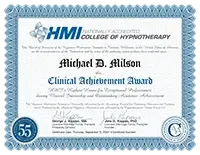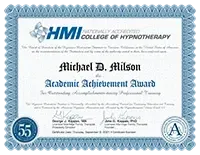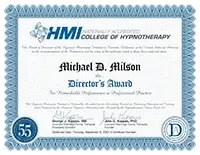
The Confidence Myth: Why Faking It Doesn't Really Make It
"Fake it till you make it" - it's the mantra that's dominated self-help circles and professional development advice for decades. But what if this widely accepted approach to building confidence is actually holding us back? Recent psychological research suggests that this popular strategy might be doing more harm than good.
The Hidden Cost of Artificial Confidence
We've all seen them - the loud voices in meetings, the expansive gestures, the unwavering certainty in every opinion expressed. Society has taught us that these are the hallmarks of confidence, leading many to believe that mimicking these behaviors is the fast track to success. However, research in social psychology tells a different story.
Dr. Amy Cuddy, initially famous for her work on power posing, later revised her stance to emphasize authenticity over performance. Her more recent research suggests that forced confidence behaviors can actually trigger increased anxiety and imposter syndrome in many individuals.
The Authenticity Gap
When we try to fake confidence, we often focus on external behaviors: speaking louder, making bigger gestures, or being more assertive. But this creates a dangerous disconnect between our outer presentation and inner experience. This misalignment can lead to:
Increased anxiety as we constantly monitor our performance
Mental exhaustion from maintaining the façade
Decreased emotional connection with others
Reduced ability to assess situations realistically
Higher rates of burnout and depression
The Status Signaling Paradox
Humans are remarkably good at detecting authenticity. While we might initially be drawn to displays of confidence, our brains are finely tuned to spot inconsistencies between someone's words, actions, and genuine capabilities. This creates what psychologists call the "status signaling paradox" - the more we try to signal high status through artificial confidence, the more likely we are to be perceived as lower status.
The "Chocolate Cake Effect"
Imagine biting into what looks like a delicious chocolate cake, only to discover it's made entirely of artificial ingredients. This is similar to how others experience fake confidence - initially appealing but ultimately unsatisfying and potentially off-putting. Research by Dr. Tomas Chamorro-Premuzic shows that overconfident individuals often:
Receive positive first impressions
Struggle to maintain long-term relationships
Are rated as less trustworthy over time
Have difficulty building deep professional networks
Experience higher rates of career plateau
The effect is particularly pronounced in leadership positions, where artificial confidence can initially help someone get promoted but often leads to poor team performance and high turnover rates.
The Self-Fidelity Alternative
Instead of faking confidence, emerging research points to self-fidelity - the practice of staying true to one's authentic self while gradually building genuine capability and confidence. This approach acknowledges that true confidence isn't about performing for others; it's about developing a grounded sense of self-trust and competence.
The key difference is that self-fidelity focuses on internal development rather than external presentation. It's about building real skills, acknowledging limitations, and growing through genuine experience rather than artificial performance.
Moving Forward
As we continue to understand the psychology of confidence, it's becoming clear that the "fake it till you make it" approach may be fundamentally flawed. True confidence isn't about being the loudest or most assertive person in the room - it's about developing genuine competence, maintaining authentic relationships, and staying true to your values while continuing to grow.
The next time you're tempted to "fake it," consider instead what it would mean to "be it" - to show up as your authentic self while actively working on the skills and capabilities that matter to you. After all, real confidence isn't about pretending to be someone else; it's about becoming the best version of yourself.
Ready to Discover Your Authentic Confidence?
As someone who has walked the path from self-doubt to genuine confidence, I understand exactly where you are right now. And just as you're reading these words, you might already be sensing that deep-down knowing that it's time for a change.
Book your free 30-minute Journey Planning Call with me, Michael D. Milson, and together we'll craft your personal blueprint for authentic confidence. As a certified clinical hypnotherapist and life coach, I'll share proven techniques that helped both me and countless others break free from the exhausting cycle of "faking it."
Schedule Your Journey Planning Call Now →
During our conversation, you'll:
Get clarity on what's really holding you back
Receive personalized strategies for building genuine confidence
Leave with actionable steps you can implement immediately
The only question is: are you ready to stop pretending and start being your authentically confident self?
Your journey to real confidence begins with a single step. Take that step today.




